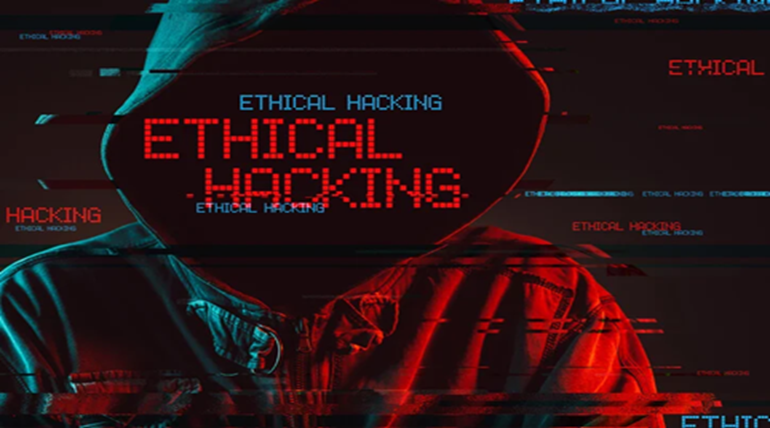Ethical Hacking: What It Is and Why It’s Important

11 months ago
Ethical Hacking: What It Is and Why It’s Important
In an era where cyberattacks are on the rise, protecting sensitive data and systems is more critical than ever. Organizations worldwide face a constant threat from malicious hackers seeking to exploit vulnerabilities. But what if hacking could be used for good?
In this blog post, we’ll explore what ethical hacking is,
why it’s important, and how it benefits businesses and society.
What Is Ethical Hacking?
Ethical hacking involves identifying and fixing security
vulnerabilities in computer systems, networks, and applications by using the
same tools and techniques as malicious hackers—but with permission and for a
legitimate purpose. Ethical hackers, often called white-hat hackers, are
hired by organizations to uncover weaknesses before cybercriminals can exploit
them.
Key activities of ethical hackers include:
- Conducting
penetration tests to assess system security.
- Scanning
for vulnerabilities in networks, websites, and applications.
- Simulating
cyberattacks to evaluate an organization’s defenses.
- Providing
recommendations to improve overall cybersecurity.
Ethical hackers work under a code of ethics, ensuring that
their activities are legal, authorized, and focused on strengthening security.
The Importance of Ethical Hacking
Ethical hacking is crucial in the fight against cybercrime,
and here’s why:
1. Identifying Security Gaps
Organizations may not always be aware of the vulnerabilities
in their systems. Ethical hackers help uncover these weaknesses and provide
actionable solutions to fix them before malicious hackers can take advantage.
2. Preventing Data Breaches
Cyberattacks often result in the theft of sensitive data,
leading to financial losses, reputational damage, and legal consequences.
Ethical hackers help prevent data breaches by securing critical assets,
protecting customer information, and safeguarding intellectual property.
3. Ensuring Compliance with Regulations
Many industries, such as finance and healthcare, are subject
to strict cybersecurity regulations. Ethical hacking helps organizations comply
with these standards by ensuring their systems meet security requirements.
4. Strengthening Incident Response
Simulated cyberattacks conducted by ethical hackers help
organizations test their incident response plans. This ensures that they can
detect and respond to real attacks effectively, minimizing potential damage.
5. Building Customer Trust
Customers value businesses that prioritize cybersecurity.
Demonstrating a commitment to protecting data through ethical hacking can
enhance trust and strengthen customer relationships.
How Ethical Hacking Benefits Businesses
Ethical hacking offers numerous advantages to businesses of
all sizes, including:
- Cost
Savings: Preventing a cyberattack is far less expensive than dealing
with the aftermath of one. Ethical hacking helps businesses avoid the high
costs associated with data breaches, ransomware, and system downtime.
- Reputation
Management: A strong cybersecurity posture protects an organization’s
reputation, ensuring customers and stakeholders feel confident in their
interactions.
- Proactive
Defense: Ethical hacking shifts the approach from reactive to
proactive, enabling businesses to stay ahead of evolving cyber threats.
- Competitive
Advantage: Organizations with robust cybersecurity measures stand out
in the market, gaining an edge over competitors who may not prioritize
security.
Becoming an Ethical Hacker
With the growing demand for skilled cybersecurity
professionals, ethical hacking has become a popular career choice. To become an
ethical hacker, individuals typically pursue certifications such as:
- Certified
Ethical Hacker (CEH)
- Offensive
Security Certified Professional (OSCP)
- CompTIA
PenTest+
These certifications validate expertise in ethical hacking
tools, techniques, and methodologies. Along with technical skills, ethical
hackers must have strong problem-solving abilities, critical thinking, and a
deep understanding of cybersecurity concepts.
Conclusion
Ethical hacking plays a vital role in protecting
organizations from cyber threats. By identifying and addressing
vulnerabilities, ethical hackers help businesses safeguard their systems,
maintain compliance, and build trust with customers.
As cyber threats continue to evolve, ethical hacking will
remain an essential component of modern cybersecurity strategies. Whether
you’re an organization looking to secure your assets or an aspiring ethical
hacker, embracing this practice is a step toward a safer digital world.
Call to Action:
Are you ready to enhance your cybersecurity skills or learn more about ethical hacking? Explore certification programs, dive into resources, and take the first step toward becoming a white-hat hero in the fight against cybercrime!
©everlastcyber™





0 Comment